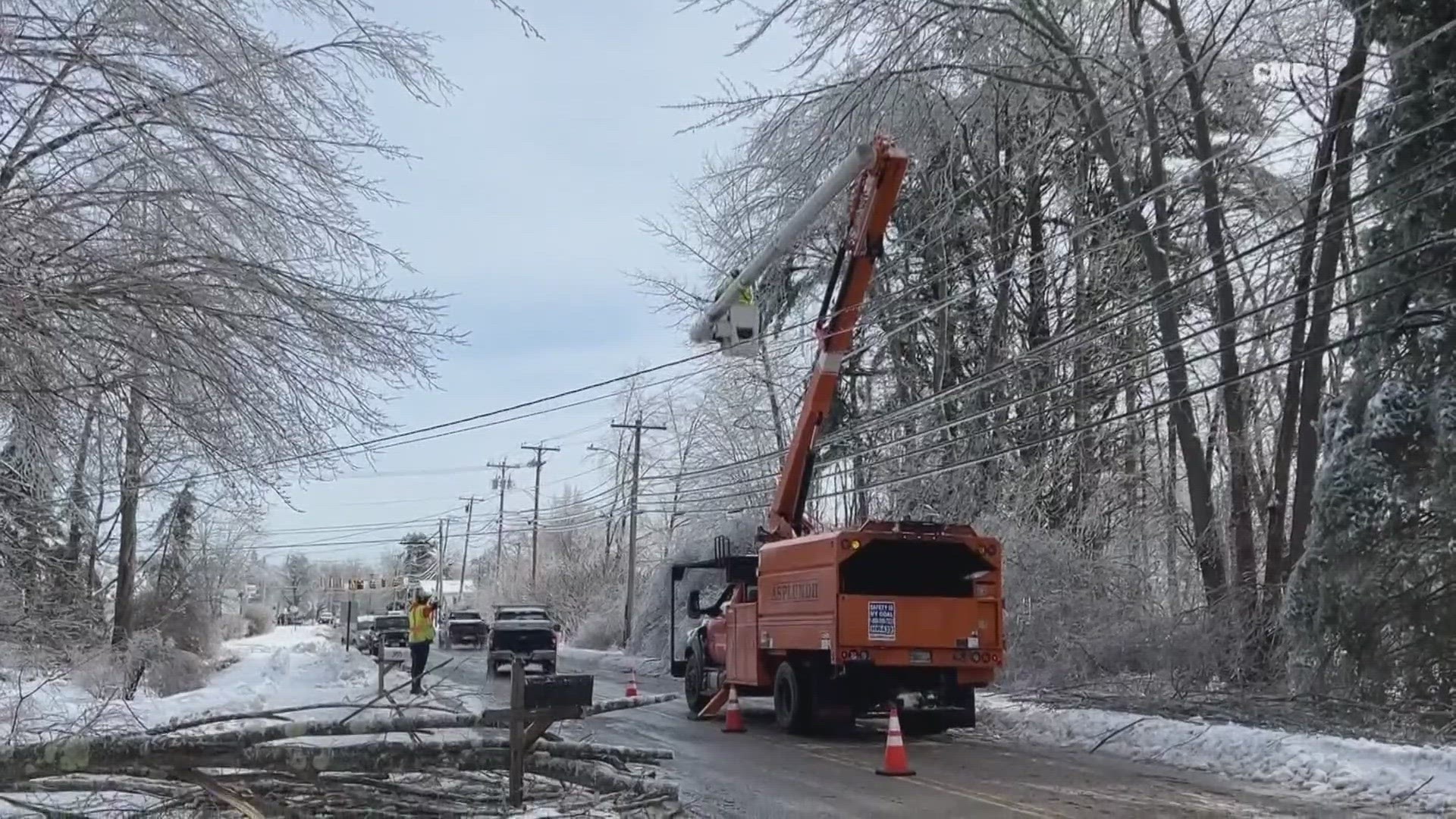BANGOR, Maine — With thousands in Maine still without power after Saturday’s storm, waiting for the lights to turn back on is becoming something of a routine in our state. But how much blame for this misfortune falls on the aging electrical grid Mainers rely on?
Data from the U.S. Energy Information Administration shows that in 2021, Maine had among the highest instances of power outages in the nation and ranked first in longest average restoration wait times at 908 minutes per customer, per year—153 minutes longer than second-place West Virginia.
For utility companies in Maine, this all has to do with geography.
"Maine is the most heavily-forested state in the nation," Marissa Minor, a spokesperson for Versant, said Monday. "We also have a very rural and spread-out service territory."
Nearly nine-tenths of the area of Maine is covered by trees—just above New Hampshire, where outages are considerably shorter, on average, according to federal data.
To Minor, Maine's unique plight calls for preventative measures.
"One would be tree timing, weather hardening, things like covered wires," Minor said.
Still, only so much can prevent a spruce from tumbling over in heavy headwinds and driving snow—leading some to question the placement of the lines.
"We hear on social media, 'Why don’t you put wires underground?'" Minor said.
But companies like Versant, as well as regulators like the Maine Public Utilities Commission, see the tunneling of wires underground as prohibitively expensive—a price that could fall, at least in part, on ratepayers.
"Parts of Maine that just because of the granite…[are] extraordinarily expensive and difficult to try to get those lines buried," Phillip Bartlett, the chair of the Maine PUC, explained. "There are other places where it may make good sense and could be done more cost-effectively."
But radical changes may be necessary to prevent future degradation of the Maine grid, Nina Flores a researcher at Columbia University, said Monday.
"Our grid is very aged, most components of it are…fifty, sixty, seventy years old," Flores said. "Having this repeated damage from different events… that’s contributing to what we’re seeing now. We just have this sort of perpetual damage."

